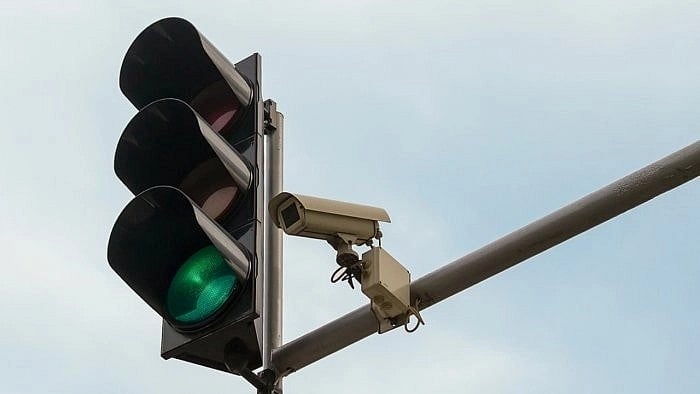
Traffic light Representative Image.
Credit: iStock Photo
The controversy over the lifting of the ban on vehicles plying between Kerala and Karnataka has erupted once again. Public pressure is mounting on both sides – Kerala is demanding that the ban be lifted, while Karnataka insists on its continuation.
The night traffic ban was first imposed in 2009 by the deputy commissioner of Charmarajnagar to protect wildlife in the Bandipur Tiger Reserve, through which two national highways – NH 181 (Mysuru to Ooty) and NH 766 (Kollegal to Kozikode) – pass. The ban, in effect from 9pm to 6am, was limited to nine hours each night.
Though the Karnataka government initially challenged the ban, the High Court upheld it in 2010. The Kerala government then approached the Supreme Court, arguing that lifting the ban was essential for the free movement of goods and people between the two states.
Meanwhile, wildlife researchers conducted a comprehensive study after the ban was implemented. Rigorous fieldwork and data collection showed a dramatic reduction in roadkills, facilitating freer movement of wildlife across the region. This evidence was submitted to the SC.
Taking this into account, the SC in 2019 upheld the ban, noting its significant role in reducing roadkill accidents and enhancing wildlife well-being along both highways.
For nearly 16 years, wildlife – particularly tigers, leopards, and elephants – have adapted to the relative quiet of the nights, using the corridor without fear of speeding vehicles or the noise, which had previously increased their stress levels.
Calls to lift the ban gained momentum after the Wayanad bypoll results were announced, with Priyanka Gandhi Vadra declared the winner. Rahul Gandhi had earlier assured lifting the ban during his term as MP. Now, support from Congress leadership appears to have emboldened those seeking to reopen the roads at night.
The renewed push is closely linked to the changing political landscape in Kerala and Karnataka. Local politicians from Wayanad are at the forefront of this campaign, arguing that lifting the ban benefits people in both states. But it is clear that vested interests may be driving the demand--interests that could endanger wildlife and encourage illegal activities under cover of darkness.
What is intriguing is the possibility that the newly elected MP from Wayanad may influence the Congress-led Karnataka government to reconsider lifting the ban. In 2015, after a series of high-level discussions between the CMs of both states, then Chief Minister Siddaramaiah stood firm in support of the ban. Coincidentally, he is back in office, but will he once again stand up to his party’s leadership?
Minister of Forest, Ecology, and Environment Eshwar Khandre rushed to Delhi to discuss the issue with the party high command. He has argued that the matter should be viewed from a humanitarian perspective. However, he is well aware that exceptions exist-- for instance, emergency ambulances are permitted to use the route. A complete lifting of the ban is unnecessary.
Moreover, this is not the only road connecting Karnataka and Kerala. The road via Kutta in Coorg, which remains open at night, provides an alternative, albeit 35 km longer than the Bandipur route.
In 1960, under Jawaharlal Nehru’s leadership, the Prevention of Cruelty to Animals Act was passed, reflecting a sense of compassion towards other creatures. In 1981, Indira Gandhi prevailed upon the Kerala government to stop the construction of a hydel dam in Silent Valley to save biodiversity and the endangered lion-tailed macaque. It now appears the fourth-generation leaders of the Gandhi family – Priyanka and Rahul – are ready to jettison this legacy to appease short-sighted political interests in their constituency.
Even more shocking is the willingness of Karnataka ministers to ignore the larger interest of conserving the fragile ecology and wildlife habitat to please their political bosses.
It is time for both Rahul Gandhi and Priyanka Gandhi Vadra to demonstrate their statesmanship instead of yielding to narrow vote-bank politics.
The Earth belongs to all – humans and non-human life forms alike. Unlike other species, humans have the ability to think and act rationally. That capacity confers a responsibility: to protect wildlife and preserve forests. Instead of abiding by this duty, we often act out of entitlement, destroying habitats of wildlife.
The basic question is: will our politicians show compassion for voiceless wild animals, or will they sacrifice them to satisfy petty political interests?
(The writer is a farmer and Uttara Kannada-based environmentalist)